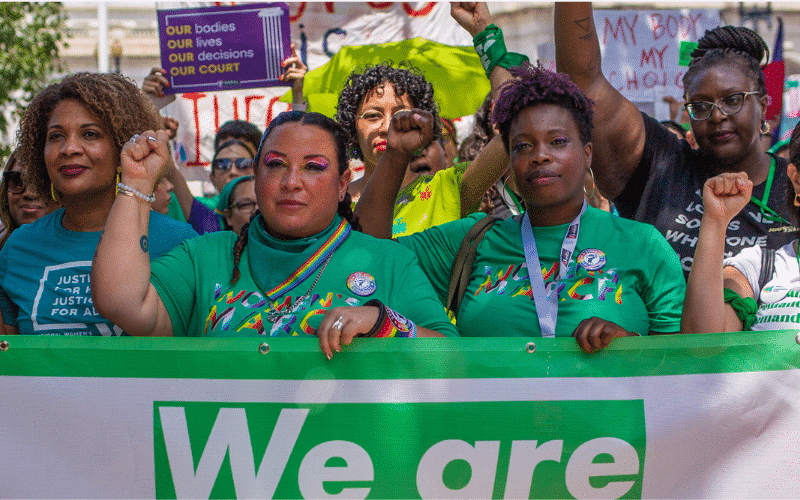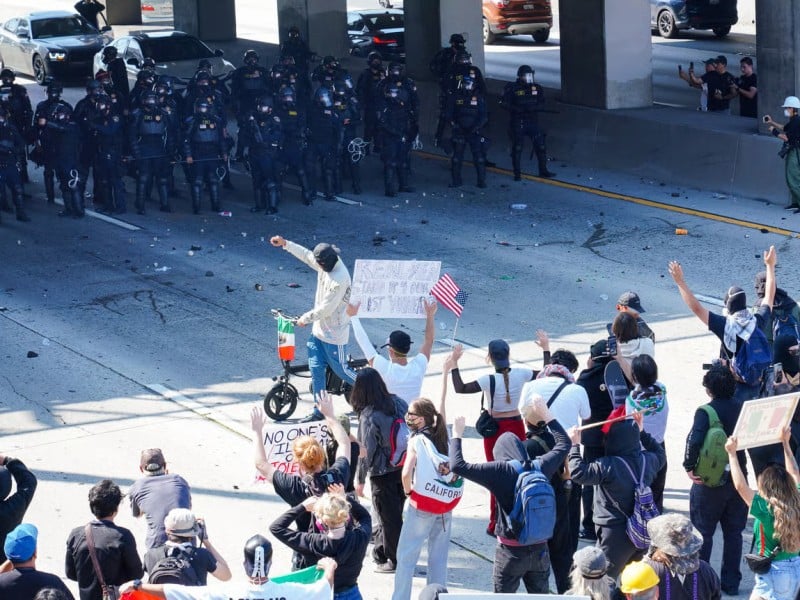The Women’s March Gears up for “The People’s March” in Washington, D.C.
On January 18, 2025, the Women’s March will host The People’s March, which will bring together a diverse array of voices in their fight for equality, justice, and progress.

On January 18, 2025, Washington, D.C., will once again become a hub of public dissent with The People’s March, hosted by Women’s March. This demonstration comes at a historic moment, just days before Donald Trump begins his second term as president. Framed as a collective stand against policies that organizers see as harmful to equality and justice, the march aims to unite voices from across the nation in an act of resistance and hope.
Scheduled to begin at 10:00 AM, the march will likely take place near the U.S. Capitol as in previous Women’s March events, but the exact location is yet to be announced. Participants are encouraged to arrive by 9:30 AM, with the rally expected to continue until 3:00 PM. The event seeks to channel people’s energy and determination into a collective call for change, addressing a wide range of issues from women’s rights to immigrant justice and LGBTQ+ equality.
A Platform for Diverse Voices
At its core, the organizers describe The People’s March as not just about opposition, but also about creating a space for advocacy, connection, and a shared vision of progress. Tamika Middleton, Managing Director of Women’s March, emphasized the importance of this inclusive approach. “We want to push against this notion of hopelessness, this sort of fear that we see people leaning into demobilization and demoralization. We’re also trying to make visible a resistance…We want to demonstrate that there are people who will continue to stand up and fight against [Trump’s policies],” she shared with Time Magazine.
The march is expected to bring together a coalition of individuals and groups united by a commitment to justice. From climate action to racial equity, the event aims to amplify voices that often go unheard, reminding the nation of the power of collective action.
Emiliana Guereca, Co-Chair of the Women’s March Foundation, also highlighted the power of coming together for a common goal in a recent press release. “The People’s March is about collective power. We are not just here to resist; we are here to lead. The policies and attacks coming our way will be cruel, but our resolve is stronger. Together, we will fight for justice, equality, and a future where all people thrive, no matter the political landscape.”
Continuing a Legacy of Activism
The People’s March builds on the historic momentum of the first Women’s March, held on January 21, 2017. That event, sparked by Trump’s initial inauguration, saw hundreds of thousands of people flood the streets wearing pink hats, which became symbolic of that historic Women’s March. It remains one of the largest single-day protests in the U.S., gathering around 470,000 people in D.C., and an estimated 4.6 million people across the country in a variety of related events.
In the years since, Women’s March has evolved, addressing criticisms of exclusivity and working to become a more inclusive movement. The decision to rebrand the 2025 event as The People’s March underscores this commitment to inclusivity, aiming to create a space where everyone concerned about the future can feel represented and heard.
“We know that we’re going to have to have all of them, poor folks, middle class folks. We’re going to need women. We’re going to need queer, trans folks and non binary folks. We’re going to need men,” Middleton shared with Time Magazine. “We’re going to need all of us really in this struggle together in order to fight back against what we see coming.”
Bold Action That Goes Beyond Marching
As the date approaches, organizers are framing The People’s March as a rallying cry for civic engagement at a critical time. Women’s March has been clear about the stakes, declaring on their website: “We are not done. With Trump set to return to the White House early next year, we’re facing a moment that calls us to act boldly. It’s time to march.” This bold call to action reflects the urgency many feel as they prepare for the potential challenges of Trump’s second term.
The People’s March is designed as one part of a broader strategy to foster long-term political engagement, with the hope that participants will carry the energy of the day into ongoing efforts to help keep everyday people engaged in political action and discourse. “What we are trying to do is offer a vision of a different world, to offer something, a vision of change that speaks to all of us, and that includes all of us,” is how Middleton describes the vision.
Women’s March organizers are committed to turning protest into progress through initiatives like the Digital Defenders program, which equips activists to combat disinformation, and the Feminist Night School, an educational platform designed to empower and inform. These programs reflect a dedication to ensuring that the march is not an endpoint but a springboard for sustained activism.
A Stand for Justice and a Call to Action
The Women’s March is calling on people across the country to join The People’s March, whether in person or in spirit. Sister marches in cities like Los Angeles offer additional opportunities for engagement, and those unable to attend can participate virtually or support the cause through donations and volunteer efforts. Organizers also encourage people to explore ongoing initiatives and educational resources as a way to stay involved beyond January 18.
As the nation prepares for another Trump presidency, The People’s March hopes to create a defining moment for those committed to protecting civil rights, equality, and democracy. Organizers hope that the activism doesn’t end with a single event, but instead be looked at as a continuous effort, driven by hope, resistance, and a belief in a better future. By uniting diverse voices and focusing on both immediate and long-term goals, The People’s March seeks to inspire long-term transformation.




